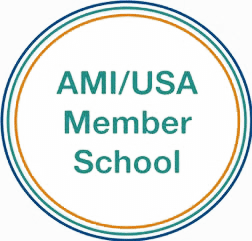
Traditional Daycare
Traditional daycare provided a place for professional caretakers to help meet the needs of young children who are not yet fully independent and require supervision. There are a large number of different forms of daycare for children, such as family childcare homes and babysitters. Today, the most popular option for parents and caregivers are center-based schools, such as childcare centers, preschool programs, or Head Start.
These daycare centers most often are settled in spaces large enough to accommodate at least one classroom for students, drop-off and pick-up areas, and outdoor spaces for children to play. Traditional daycare programs tend to provide half and full-day services where parents can choose what better fits their schedule. The day at a traditional daycare facility usually includes time for meals, naps, activities, and sometimes field trips.
Montessori Daycare
In many ways, Montessori schools resemble traditional daycare centers when it comes to the length of day and schedule. In a Montessori daycare program, parents can drop their children off at school in the morning and pick them up in the afternoon. While children are at Montessori schools, parents can feel sure that the professional caretakers are meeting the physical and emotional needs of their child, as well as offering them engaging activities on an individual level or as part of a small group.
Montessori schools must abide by the same government standards as daycare centers as well, so a Montessori school and daycare center in the same state must follow the minimum requirements concerning things like staff-to-child ratios and safety regulations. Over time, however, children who attend Montessori schools surpass students who have attended traditional daycare programs in terms of social and emotional development, academic achievement, and overall happiness.
Traditional Preschool
Traditional preschool is one early instruction style of learning that focuses on preparing students academically for kindergarten. Traditional daycare generally relies on a structured learning style in a classroom that is teacher-led and utilizes group learning. There is also the play-based preschool model which features a student-led learning environment where flexibility and intuitive exploration are promoted by educators. In these types of preschools, instructors act as guides or collaborators to the children instead of leaders.
Montessori Preschool
While young children show no substantial difference in intelligence levels at the start of their preschool programs, it has been proven that children enrolled in Montessori schools progress at a higher rate in terms of vocabulary, reading, critical thinking, and numerical understanding.
Not only do children who attend Montessori schools set the bar higher in terms of academic achievement, but the achievement gap also decreases through Montessori preschool programs, meaning children from lower-income families, or students who lack executive functioning skills, can keep pace with the rest of the class, creating a more even playing field.
It has been said that daycares are designed to contain and entertain children, whereas Montessori settings actively seek to aid childhood development. Montessori preschools and daycares practice a holistic approach that cares for the whole child, not just one aspect of their education. While many daycare centers now follow an innovative, research-based curriculum, studies show that children who attend Montessori school excel in every area of growth, whether that is through better test scores or higher levels of happiness.
The Montessori Children’s House offers preschool and kindergarten programs that inspire children to love learning. Our preschool and kindergarten programs are best suited for children aged 18 months to 6 years. It is our aim to help your child reach their greatest potential. Reach out today to begin your journey with The Montessori Children’s House.
